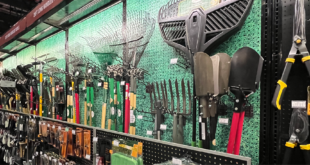Earlier this year, Scott Ward, co-owner of the Fix and Feed family of farm and hardware stores, opened a store in Quinlan, Texas, which is the company’s fourth location in the state. While you don’t need superpowers to pull off an expansion to your business, Ward shares a few of the secrets he’s learned to make it successful.
1. Beware of regulations.
Know permitting and zoning regulations in the town where the new store will be located. “Doing more research on the front end about what the city expects would have saved us a lot of time and money,” Ward says.
2. Don’t do too much at once.
Ward and his team decided to implement a new POS system for all their stores at the same time they were opening the new location. Looking back, he says it would have been a better idea to separate the projects.
3. Spend extra time planning.
Ward had a designer on staff create a 3D model of the new building, which he used to plan shelving and the layout in the store. The extra time he spent planning made the setup process go a lot smoother.
4. Use wholesaler resources.
“We spent three months picking products to stock with our wholesaler and laying out the planograms for each shelf so we had a detailed plan prior to making that first order,” Ward says.
5. Study demographics.
While Ward had a general idea of what he wanted to sell in the new location, he used a demographic study provided by his wholesaler for deeper insights into customer demand for that particular area.
6. Plan to overspend.
Don’t cut corners, especially in inventory. You don’t want to open an understocked store. “Always plan to spend more than you think you’ll need,” he says. “You can always not use it if you don’t need it.”
7. Leverage vendor relationships.
The initial inventory investment for a new store is high. “Take advantage of any discounting or extended terms from your wholesaler or vendors so you can free up your cash and get better margins,” Ward says.
8. Use veteran employees in the new store.
Ward temporarily used employees from other locations to get the new store running smoothly and teach new staff company procedures. “I would rather be overstaffed for a short time than not have the proper knowledge on the floor,” he says.
9. Don’t advertise before you’re open.
Unforeseen obstacles delayed the opening of the new store, so Ward is glad he didn’t make a big advertising splash before the store was actually open. He had the grand opening about four months after the store was operational.
10. Take the risk.
“Being successful means taking a risk, and there’s a difference between being risky and taking a planned risk,” Ward says. “Opening a new store can be scary, but if you’re planning, you can have some peace of mind.”
 Hardware Retailing The Industry's Source for Insights and Information
Hardware Retailing The Industry's Source for Insights and Information








